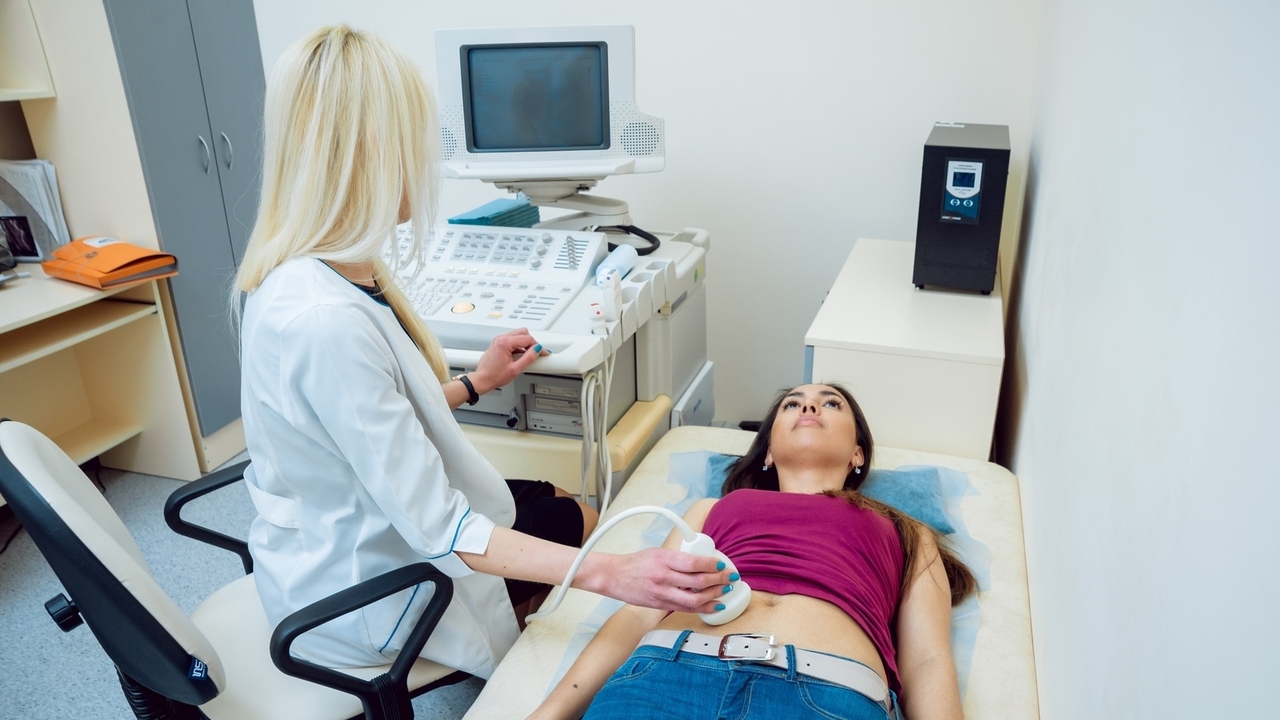I have been using an IUD (Skyla) since December of 2014. After the somewhat horrific experience I had getting it inserted, and some mild cramping the first few weeks post-insertion, I was super happy with my decision. It was great not to have to worry about taking a pill everyday, my skin was clearer, and my periods were only lasting around 3 days. However, the past few months things have started to change. My periods have been irregular, I've had a lot of cramping and bloating, and I've experienced more extreme PMS symptoms than I have ever had before.
This all culminated in a trip to the ER last night, where I was told I ruptured an ovarian cyst. The ultrasound technician also informed me that I have 3 other large cysts (4+ cm) and a few smaller ones, along with a lot of free, complex fluid surrounding my right ovary, indicating a large one had ruptured. She seemed shocked when I told her I had no idea of my condition, figuring that the gynecologist would have let me know pre-IUD. After hours of waiting, the ER doctor came to inform me that she believed the cysts were being caused by my IUD, and I should make an gyno appointment to have the cysts looked at, and have the IUD removed. She also said she was concerned that I might have PCOS. I certainly plan on getting an appointment ASAP, but I am curious, are the cysts really being caused by the IUD? Its convenience and other perks are things I would find hard to give up. And, as for the PCOS, I am finding that hard to believe, as I don't have a single symptom apart from the cysts. Has anyone else had a similar problem? I would love to get a bit of insight before I head to my appointment. Thank you!
All user-generated information on this site is the opinion of its author only and is not a substitute for medical advice or treatment for any medical conditions. Members and guests are responsible for their own posts and the potential consequences of those posts detailed in our Terms of Service.





Add a Comment7 Comments
I went to the Er today with severe abdominal pain on my right ovary. I have cysts three large ones. 4.5 cm on the right and one on the left. I'm wondering is there a way to pop them with a exercise? Or a movement the pain is level 10 they gave me Percocet that barely helps! I'm.consideribg going back to ER but it's Nye weekend. Etc. I want them removed because the pain is to much for me to bare! Any suggestions??
December 31, 2017 - 2:30amThis Comment
Hello Anon
January 1, 2018 - 8:58amThere is no way to "pop' them; please go back to the ER, they are staffed even though it's the holidays. Your body needs help and it doesn't care that it's the holidays; you need help!
Best,
Susan
This Comment
I am currently tagging through the same thing right now (pelvic pain that lead to an ultrasound that found multiple cysts, got Skyla removed, and was told to wait 3-6 months and check for irregular periods to decide if it is PCOS or from skyla). I think the safest thing to do is take any birth control out of your system to see if it is your body (and PCOS) causing cysts or the birth control. Thank you so much for posting and asking. It helped me feel less alone knowing I'm not the only one.
August 24, 2017 - 5:04amThis Comment
Yes that was very helpful, thank you! It makes me feel somewhat better to know that this is common. After re-reading my discharge papers from the hospital, the "complex fluid" part of the diagnosis is starting to worry me. It says that this means that the fluid around my ovary was blood, and after I googled it a bit this seems to point towards an endometiroma, not just a simple cyst. Hoping that I'm wrong, but I figured I could ask to see if someone could clear it up for me.
September 8, 2016 - 9:57amThank you!
This Comment
Hello strstruk,
Have you scheduled follow up appointment with your gynecologist?
Your physician will review any ultrasound reports and findings with you.
An ovarian cyst is a fluid-filled sac that forms on or inside an ovary. In some cases, the cyst can break open or rupture. In some cases, a ruptured cyst can cause more severe symptoms. These can include pain in abdomen and bleeding.
An endometrioma is a condition associated with endometriosis. It formed when a tiny patch of endometrial tissue (the mucous membrane that makes up the inner layer of the uterine wall) bleeds, sloughs off, becomes transplanted, and grows and enlarges inside the ovaries. As the blood builds up over months and years, it turns brown. When it ruptures, the material spills over into the pelvis and onto the surface of the uterus, bladder, bowel, and the corresponding spaces between.
strstruck, you may be overthinking the term complex fluid and the presence of blood following the rupture.
Regards,
September 9, 2016 - 8:16amMaryann
This Comment
Hello Anonymous,
Welcome to EmpowHER. Thank you for sharing your experience and for reaching out to our community for information. I can only imagine how startling it was to receive this news.
I found this information on the website, Drugs.com.
"Because the contraceptive effect of Skyla is mainly due to its local effects within the uterus, ovulatory cycles with follicular rupture usually occur in women of fertile age using Skyla. During clinical trials, ovarian cysts (reported as adverse reactions if they were abnormal, non-functional cysts and/or had a diameter >3 cm on ultrasound examination) were reported in 13.2% of women using Skyla. Most of these cysts are asymptomatic, although some may be accompanied by pelvic pain or dyspareunia. In most cases the ovarian cysts disappear spontaneously during two to three months observation. Persistent ovarian cysts should be evaluated. Surgical intervention is not usually required."
From the Skyla website, "Most common adverse reactions...ovarian cysts 13.2%.."
Hope this is helpful,
September 7, 2016 - 8:17amMaryann
This Comment
I think I may have accidentally replied above as a new comment. If you get a chance, I would love your input!
September 8, 2016 - 1:30pmThis Comment